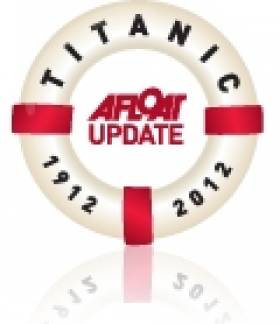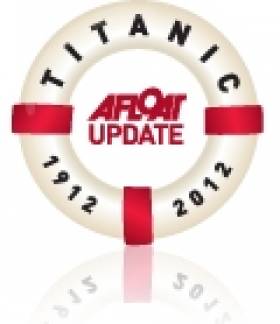Displaying items by tag: memorial
First Irishman to Dive Titanic Site Shares His Story
#TITANIC - To mark the 100th anniversary of the sinking of the Titanic, JOE.ie sat down with the first Irishman to dive the historic wreckage.
In 2000, Rory Golden descended two-and-a-half miles beneath the surface of the Atlantic to witness the Titanic's watery gravesite.
“When I first cast my eyes on the wreck," he says, "for me it was just an incredibly exciting and equally humbling and incredibly poignant moment and you have all these emotions all at once because you are looking at something very few people in the world have seen.”
Amazingly, the self-avowed Titanic expert wasn't originally a part of the dive team for the expedition.
"My role at the time was to be the dive safety supervisor, but that whole role changed over the course of the expedition," he says. “There was no guarantee of me going down there because I was very low in the pecking order."
But a memorial plaque he brought with him from Cobh ended up being Golden's ticket to the TItanic, joining the crew aboard an 18-tonne Russian submarine.
And he came back with more than memories, too, as a glint in the corner of his eye turned out to be the remains of the ship's wheel.
"I was the first person to touch the wheel of the ship since it went down in 1912 and probably the last person to hold it before it went down was Captain Smith.”
JOE.ie has much more on the story HERE.
Titanic Emergency as Ill Passenger Airlifted
#TITANIC - The Titanic memorial cruise was yesterday forced to turn back just 100 miles from the southwest coast of Ireland after a passenger fell ill, BBC News reports.
The Irish Coast Guard rescue helicopter at Shannon was dispached to the MS Balmoral to retrieve BBC cameraman Tim Rex, 56, who was struck by a non-life threatening heart condition, according to the Irish Independent.
Rex, who was covering the memorial sailing for the BBC, was treated by ship's doctors before being airlifted to hospital as a precaution.
The emergency happened just hours after the ship departed Cobh, the last port of call of the ill-fated Titanic before it sank in the North Atlantic on 14 April 1912.
A spokesperson for Titanic Memorial Cruises confirmed that despite the delay, the ship is still on schedule and is expected to arrive at the Titanic wreck site as planned on Saturday.

























































